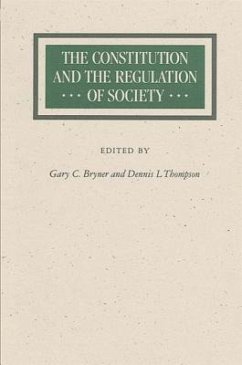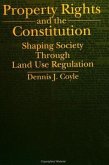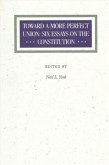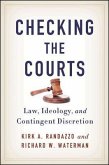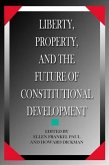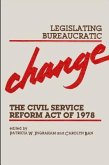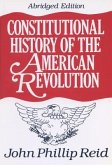In the two hundred years since ratification of the Constitution, government regulation of American society has grown enormously in both scope and complexity. The Framers, who made short work of regulation with the simple admonition that "Congress shall have the power To... regulate Commerce," would surely blanch at the extent to which those few words have since been interpreted. Beyond mere immensity, one wonders if they could have foreseen the degree to which broad bureaucratic discretion would threaten the constitutionally based separation of powers, rule of law, and individual rights--or, on the other hand, to what extent unchecked administrative oversight and political manipulation could threaten regulatory efficiency and effectiveness. In this volume eight prominent scholars representing the disciplines of political science, government, law, and philosophy analyze and debate with each other different aspects of government regulation, and the problems generated thereby, from a constitutional perspective. Topics include the growth, scope, and range of government regulation; regulation as it is affected by liberal thought and action; the paradox posed by the dangers to society of zealous regulatory efforts to protect it; a philosophical analysis of the preconditions for a free society; the expansion of public power through increased regulation at the expense of democratic accountability and control; expansion of judicial power to cope with regulatory rule making; the need to maintain the viability of private institutions, to include the family, in the face of increased regulation; the need for a renewed effort to assure that officials of the expanded regulatory structure have a sense of and carry out their duty to the American people; and competing views concerning how the Constitution should be interpreted regarding administrative decision making and judicial review. The Constitution and the Regulation of Society is the second of a three-volume series examining significant features of the Constitution. The series, inspired by the bicentennial of that great achievement, consists of essays presented by scholars at three conferences held at Brigham Young University in 1985, 1986, and 1987, and several additional essays written especially for these volumes. This volume includes in addition debate and discussion between the contributing scholars during the conference they attended.
Hinweis: Dieser Artikel kann nur an eine deutsche Lieferadresse ausgeliefert werden.
Hinweis: Dieser Artikel kann nur an eine deutsche Lieferadresse ausgeliefert werden.

